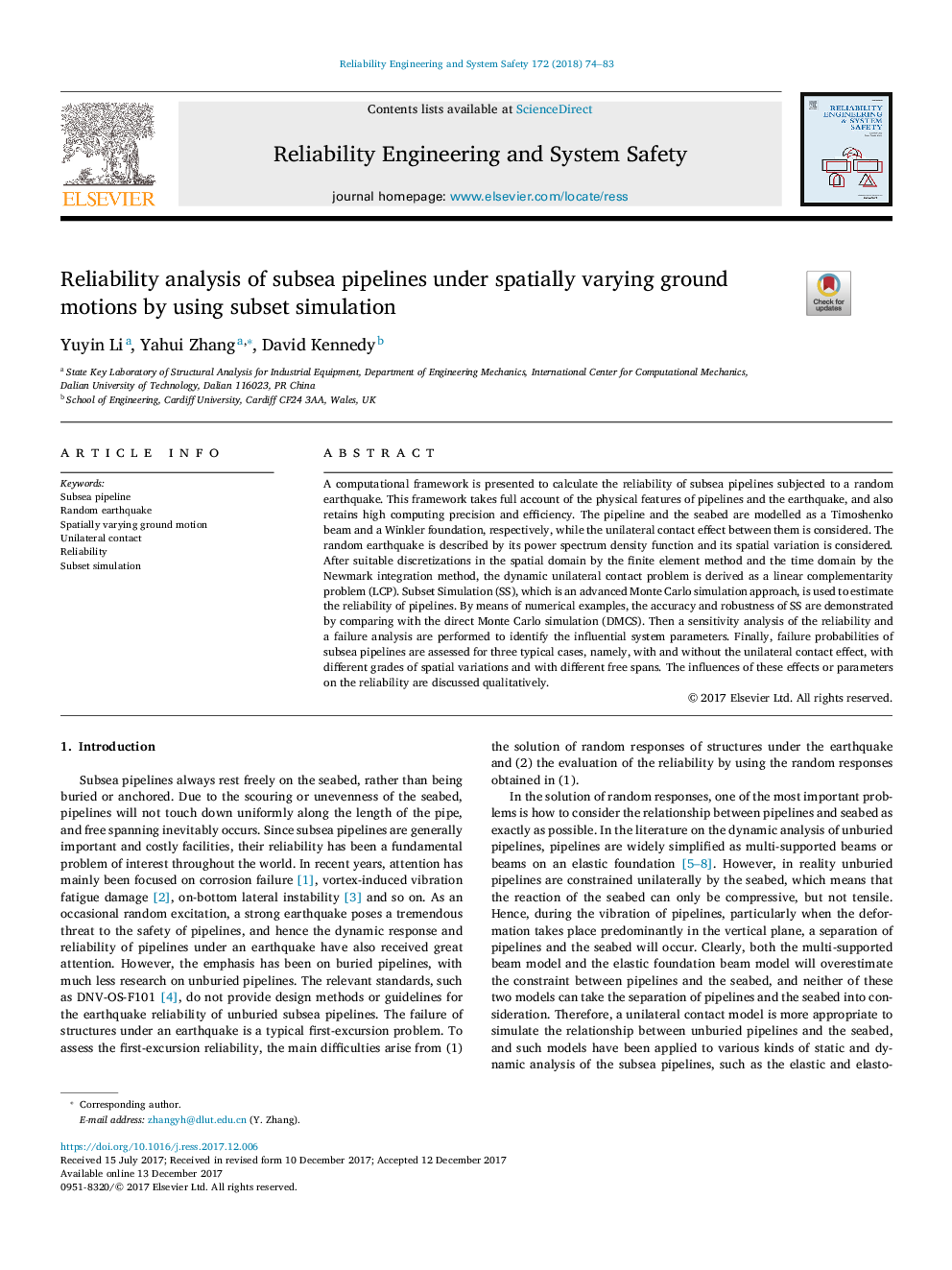| Article ID | Journal | Published Year | Pages | File Type |
|---|---|---|---|---|
| 7195241 | Reliability Engineering & System Safety | 2018 | 10 Pages |
Abstract
A computational framework is presented to calculate the reliability of subsea pipelines subjected to a random earthquake. This framework takes full account of the physical features of pipelines and the earthquake, and also retains high computing precision and efficiency. The pipeline and the seabed are modelled as a Timoshenko beam and a Winkler foundation, respectively, while the unilateral contact effect between them is considered. The random earthquake is described by its power spectrum density function and its spatial variation is considered. After suitable discretizations in the spatial domain by the finite element method and the time domain by the Newmark integration method, the dynamic unilateral contact problem is derived as a linear complementarity problem (LCP). Subset Simulation (SS), which is an advanced Monte Carlo simulation approach, is used to estimate the reliability of pipelines. By means of numerical examples, the accuracy and robustness of SS are demonstrated by comparing with the direct Monte Carlo simulation (DMCS). Then a sensitivity analysis of the reliability and a failure analysis are performed to identify the influential system parameters. Finally, failure probabilities of subsea pipelines are assessed for three typical cases, namely, with and without the unilateral contact effect, with different grades of spatial variations and with different free spans. The influences of these effects or parameters on the reliability are discussed qualitatively.
Keywords
Related Topics
Physical Sciences and Engineering
Engineering
Mechanical Engineering
Authors
Yuyin Li, Yahui Zhang, David Kennedy,
